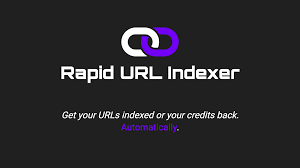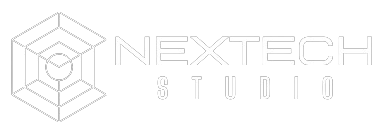
Getting your URLs indexed quickly is a critical part of any successful SEO strategy. While Rapid URL Indexer is a popular choice for many, there are several other powerful tools available that offer unique benefits and features. In this blog, we’ll dive into the best alternatives to Rapid URL Indexer, comparing their pros and cons to help you find the right tool for your needs.
1. Speed Links: Flexible and Comprehensive Indexing
What Makes Speed Links Stand Out?
Speed Links is a versatile tool offering various subscription plans and API access, making it a great option for projects of all sizes. Its ability to handle bulk URL submissions is perfect for large-scale SEO campaigns.
Pros of Speed Links
- Customizable Subscription Plans: Choose a plan that fits your specific needs, whether you’re managing a small blog or a massive website.
- API Integration: Easily integrate Speed Links into your existing SEO workflow with its API access.
- Efficient Bulk URL Submission: Save time and effort by submitting multiple URLs at once.
Cons of Speed Links
- No Indexing Guarantee: Speed Links doesn’t guarantee that all submitted URLs will be indexed, which can be a concern for some users.
- Potential Penalties: The tool’s rapid indexing capabilities come with some risks, including the possibility of search engine penalties if not used carefully. Learn more about potential risks here.
For a deeper understanding of Speed Links, you can visit their official site.
2. Indexification: High Crawl Rate with Extra Features
Why Choose Indexification?
Indexification offers a high crawl rate, making it a strong contender for quick URL indexing. Additionally, it comes with features like link shortening, RSS feed creation, and XML sitemap generation, providing added value for your SEO efforts.
Pros of Indexification
- Fast Crawling: Experience quicker indexing thanks to Indexification’s high crawl rate.
- Added Features: Beyond indexing, take advantage of link shortening and other useful tools.
- Cost-Effective Subscriptions: Ideal for high-volume users, Indexification’s subscription model can be more economical for regular use.
Cons of Indexification
- No Refund Policy: Unfortunately, Indexification doesn’t offer refunds for URLs that fail to index, which might be a dealbreaker for some.
- Limited API Documentation: The API documentation isn’t as comprehensive as some competitors, which could pose integration challenges.
You can explore more about Indexification on their website.
3. Linkdexing: User-Friendly with Detailed Analytics
Why Linkdexing is a Great Choice
Linkdexing is known for its intuitive, user-friendly interface and detailed visual reports, making it an excellent choice for users who value ease of use and in-depth analytics.
Pros of Linkdexing
- Intuitive Interface: Navigate easily with Linkdexing’s simple and user-friendly design.
- Comprehensive Analytics: Benefit from detailed visual reports that provide valuable insights into your indexing efforts.
- Flexible Payment Options: Choose between pay-as-you-go and subscription models to suit your financial preferences.
Cons of Linkdexing
- Inconsistent Indexing Speed: The time it takes to index URLs can vary, which might be frustrating if speed is a priority.
- No Automatic Refunds: If your URLs don’t get indexed, you won’t receive automatic refunds, which could be a downside.
For more details on Linkdexing, check out their official page.
4. Omega Indexer: Reliable and Effective
What Sets Omega Indexer Apart?
Omega Indexer is recognized for its effectiveness in getting URLs indexed quickly and efficiently. It’s particularly useful for large-scale projects thanks to its bulk submission capabilities.
Pros of Omega Indexer
- High Success Rate: Omega Indexer is known for reliably getting URLs indexed, making it a trusted tool for many SEO professionals.
- API Access: Integrate Omega Indexer seamlessly with your existing tools via its API.
- Bulk Submission Support: Submit large volumes of URLs at once, perfect for big projects.
Cons of Omega Indexer
- Subscription Requirement: Omega Indexer requires a subscription, which may not be suitable for users looking for one-off services.
- Lack of Visual Reports: Unlike some other tools, Omega Indexer doesn’t offer detailed visual reports, which might be a drawback for users who rely on data analytics.
To see if Omega Indexer is the right tool for you, visit their site.
FAQs
Q: Can these tools be used in conjunction with Rapid URL Indexer?
A: Yes, many SEO professionals use multiple tools to maximize their URL indexing efforts.
Q: Are there any risks associated with rapid URL indexing?
A: Yes, there can be risks, including potential search engine penalties. It’s important to use these tools responsibly and ensure they align with your overall SEO strategy.
Final Thoughts
Selecting the right URL indexing tool depends on your specific needs, budget, and the scale of your SEO projects. While Rapid URL Indexer is a strong option, alternatives like Speed Links, Indexification, Linkdexing, and Omega Indexer each offer unique features that might better suit your needs.
Evaluate the pros and cons of each tool and choose the one that aligns with your SEO strategy. With the right tool, you can enhance your website’s visibility, improve indexing efficiency, and ultimately drive more organic traffic to your site.




